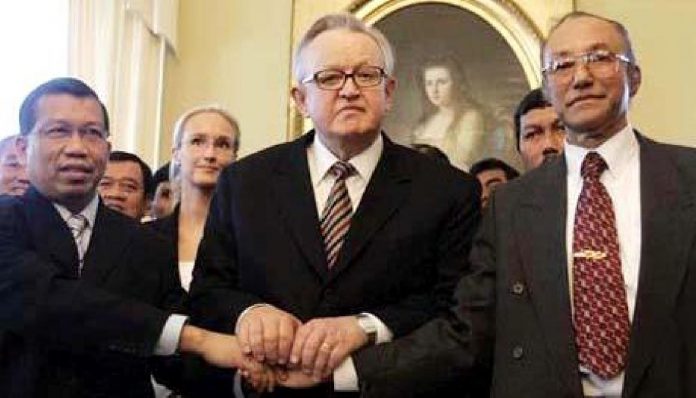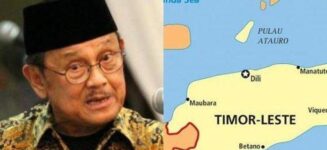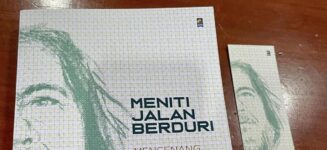This artcle was published in The Jakarta Post Jan. 27, 2006, page 6. Also in
https://www.tmcnet.com/usubmit/2006/01/27/1319679.htm
A reception on Jan. 20 at the Indonesian ambassador’s residence in Helsinki, thousands of miles from Aceh, provided an occasion that symbolically highlighted the success, so far, of Aceh’s peace process
With a chilly minus 22 degrees Celsius outside the building, the atmosphere inside had thawed. For the enthusiastic Indonesian Vice President Jusuf Kalla, who initiated the peace process, it must have been one of his finest moments. He now reaps the peace benefits by calling Europe for a dialog and increased trade and investment in “the new, post-tsunami and post-conflict democratic Indonesia”.
Yet, for all the euphoria abroad, Aceh remains a critical issue for the future of Indonesia’s nation-state
For the first time an Indonesian state leader met and warmly welcomed former rebel leaders who had fought Jakarta for decades. “All sides are now satisfied and optimistic,” said Kalla standing between Free Aceh Movement (GAM) Prime Minister Malik Mahmud and peace mediator Finnish former president Martti Ahtisaari. “From now on Pak Kalla is no longer a stranger to me,” replied Malik, visibly happy.
The event became even more cordial with Malik’s ally, Zaini Abdullah, chatting happily with his former counterpart at the Geneva 2000 peace effort Hassan Wirajuda. Farid Husein, Kalla’s most industrious assistant, was proudly showing a photograph of his meeting, another historic one, with top GAM leader Hasan Mohammad di Tiro in Stockholm; while former Aceh governor Azwar Abubakar warmly kissed Malik as former Soviet leaders used to kiss their East European allies
What made that day distinct from the historic signing of the peace deal in August 2005 is of course that the phase that was first thought to be most critical and sensitive had been concluded without serious follow-ups. GAM’s weapons have been decommissioned and Jakarta’s soldiers pulled out. Clearly, this -as both sides indicated to Radio Netherlands – has led to greater mutual trust and hope
“From the outset we have been optimistic,” said former war commander Maj. Gen. Bambang Dharmono. Even Malik Mahmud, who at the August ceremony sharply attacked the army-sponsored militias, said he has no such worry anymore
Of all rebellions, GAM’s may have been the fiercest, but Teungku M. Usman Lampoh Awe, GAM’s most senior leader in Aceh who joined Kalla’s trip, said, “we, the Acehnese nation, believe peace will continue to prevail if the two parties remain honest” i.e. loyal to the Memorandum of Understanding on the peace settlement signed in August
A lot can be learned from the Aceh issue as it highlights the diverse concepts of nation and sovereignty. For, behind the surface of rhetoric, different discourses could transform the issue as the process is now entering the political phase
The debate on the Helsinki MOU throughout the second half of last year has been predominantly about state sovereignty, which critics say is being threatened by the MOU — thus, reflecting the anxiety of the state vis-a-vis the remote provinces.
For the New Order legacy, not only among the military, has basically distorted Indonesia’s nationalistic spirit by adding a centralistic dimension quite in accordance with freedom fighter Soepomo’s outdated concept of an “integrated state” that emphasizes oneness rather than diversity. As a consequence, the state has since acquired a sacrosanct nature, which Soeharto’s New Order nurtured and is still vividly manifested, for example, in the almost obsessive concern with the unitary state, the NKRI – unity for the sake of unity per se
Such authoritarian state paradigm has apparently resulted in a kind of state-nationalism that had hardly respected local interests – a discourse, that is, that encourages radical and moderate nationalists alike to think in terms of the paramount importance of state territory and resources, rather than the human communities, values and aspirations of the constituting provinces – in spite of the fact that these resources are of great importance to the interests of the state. Here, Aceh, like Papua, is a case in point
Since the New Order’s centralistic concept has allowed no space for local parties (which were facts of life in the early years of Indonesia’s independence), not surprisingly, resistance against that idea has gained strength. “Local party? No way!” had been the response even from the top levels of the administration.
Although Jakarta finally did concede, unfounded fears remains that local parties could pave the way to Aceh’s independence. It remains to be seen, therefore, whether the Java-based nationalists who oppose the Helsinki MOU, will change their attitude or continue to be an obstacle as the law on Aceh administration has to be enacted on March 31
For GAM, or the Acehnese for that matter, “to return to the womb of the Indonesian nation”, as some put it, may be one thing and to develop a sovereignty of its own is another. Since not all inhabitants of the archipelago after the Youth Oath of Oct. 28, 1928 automatically became Indonesians the next day, by the same token, no GAM members or supporters may be expected to discard their notion of an Acehnese nation in a fortnight
No MOU without security, welfare and justice will guarantee that Aceh remains within the republic. But, basically, what matters now is a regional, Hong Kong-like sovereignty, which, if the Helsinki’s MOU is fully implemented, should give them full space to develop their aspirations.
Hence, while GAM desperately wants the law on Aceh administration to guarantee that space, at the same time they resist the growing demand for new provinces within Aceh
Unitary states with authoritarian regimes have failed to prevent their countries from falling apart, as one could learn from the experience of Pakistan military regime (1971), Soviet Union (1991) and Yugoslavia (1995). But Malaysia, Germany and Belgium (since 1993), to mention but a few, have proven that a federal, democratic state is a solid recipe to maintain a united country.
Kalla and GAM leaders have good reason to celebrate Aceh’s peace, but it is important to realize that the issue may have far reaching implications. With the help of civil societies, which both parties in Helsinki have ignored, a democratic Aceh could again, as Sukarno used to say of Aceh, become a starting capital for a new, albeit more democratic Indonesia
It’s high time to nurture a new Indonesian nationhood as an imagining project for diverse races and ethnic groups, rather than a rigid and mere sacrosanct territorial framework.
Aboeprijadi Santoso, Brussels, Helsinki The writer is journalist with Radio Netherlands



